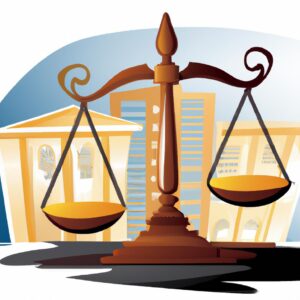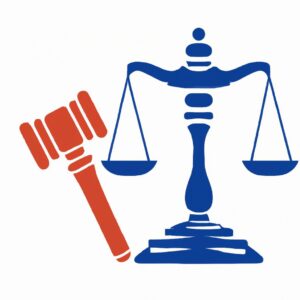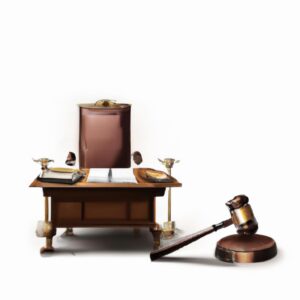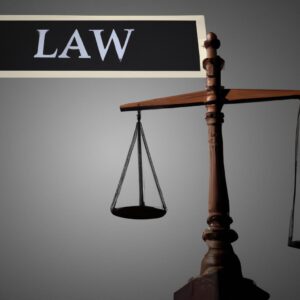
what is a probate petition
A probate petition is a legal document filed with the court to initiate the process of settling a deceased person’s estate. It outlines the assets, debts, and beneficiaries involved in the estate.
Estate Law New York Page 43

A probate petition is a legal document filed with the court to initiate the process of settling a deceased person’s estate. It outlines the assets, debts, and beneficiaries involved in the estate.

A power of attorney grants someone the authority to make decisions on your behalf, but it also comes with limitations. Understanding these rights and restrictions is essential to ensure that your interests are protected.

A testamentary trust is a legal arrangement where a trustee holds and manages assets on behalf of beneficiaries after the grantor’s death. It allows for control and protection of assets even after the individual has passed away.

Preparing for the end of life may be a difficult task, but it is an essential one. From making funeral arrangements to creating a will, taking these steps can offer peace of mind and ensure your wishes are honored when the time comes.

When parents pass away, their debts may become a burden for their children. Inheritances are a time for mourning, but also understanding the legal implications of debts left behind. It is vital to be informed of your responsibility in handling your parent’s financial obligations.

Article 81 Guardianship provides a legal framework for protecting vulnerable individuals who may be unable to make decisions for themselves. This process ensures that their interests are safeguarded by appointed guardians.

When someone passes away, their belongings and assets are passed on to their beneficiaries. Understanding beneficiary estate meaning is crucial in the estate planning process to ensure a smooth transition of assets after death.

After the sudden passing of my husband, I was left with the burden of a house that was solely in his name. Navigating the legal process of transferring ownership has been a challenging but necessary step in moving forward with my life.

Rumors have long circulated about Walt Disney’s decision to freeze himself after death. Some believe it was to be resurrected in the future, while others dismiss it as a myth. Let’s delve into the mystery behind this peculiar choice.

Introducing the end of life planning kit – a comprehensive resource to help you navigate your final wishes. From financial matters to healthcare preferences, this kit has everything you need to ensure peace of mind for you and your loved ones.

A fiduciary trustee is a person assigned to oversee assets on behalf of another. Acting with integrity and transparency, they are entrusted with managing investments and ensuring the best interests of the beneficiary are the top priority.

Joint tenancy can be a useful estate planning tool, but can it be willed? The answer may surprise you. Learn more about the complexities of joint tenancy and how it fits into your estate planning strategy.

Probate costs are expenses associated with the legal process of handling a deceased person’s estate. These may include court fees, attorney fees, and appraisal costs. Understanding the probate process can help individuals plan ahead and minimize costs.

From fixed-term to periodic tenancies, there are various types of tenancy agreements that determine the rights and responsibilities of both tenants and landlords. Understanding the type of tenancy you have is essential for a smooth rental experience.

The cost of trust wills can vary depending on complexity and location. From legal fees to administration costs, it’s important to understand the expenses involved in ensuring your assets are protected.

Looking for a compassionate way to navigate air travel during a time of loss? Bereavement airline tickets offer discounted fares for those traveling due to a family member’s passing, helping to ease the burden of unexpected travel costs in times of grief.

Changing a deed after death can be a complex and sensitive process. From obtaining a court order to transferring ownership, there are several steps involved in updating legal documents after a loved one passes away. Let’s explore how to navigate this challenging task with care and attention to detail.

As the saying goes, there’s no time like the present when it comes to estate planning. However, the best time to start is now, before it’s too late. Don’t wait until it’s too late to protect your assets and ensure your loved ones are taken care of.

Curious about how much it will cost to create a will? The price can vary depending on factors such as complexity and where you live. Let’s explore the ins and outs of will pricing to help you plan for the future with ease.

Finding out about a loved one’s will can be a sensitive task. Begin by checking with the deceased’s attorney or the probate court in the county where they resided. Keep in mind that wills are typically kept confidential until the individual passes away.

When a loved one passes away, it can be overwhelming to think about their financial matters. One common question that arises is how long to keep the deceased person’s tax returns. It is important to understand the timeline and requirements for maintaining these records.

Yes, you can be both a grantor and a trustee in a trust. As a grantor, you create the trust and fund it with assets. As a trustee, you manage those assets for the benefit of the trust’s beneficiaries. This dual role can provide flexibility and control over your assets.

Embark on the journey of preparing for your future with our comprehensive will planning guide. Discover the essential steps to protect your assets and ensure your legacy lives on.

A trustee holds a significant amount of power in managing and distributing assets for the benefit of beneficiaries. From making investment decisions to handling legal matters, trustees must navigate their responsibilities with care and prudence.

A trust checking account is a financial tool that allows individuals to manage funds on behalf of beneficiaries. It combines the convenience of a checking account with the security and oversight of a trust, ensuring that assets are used according to the wishes of the account holder.

Changing a living will can be a daunting task, but with the right guidance, it can be a smooth process. From updating beneficiary information to adding new directives, here are the steps you need to take to ensure your living will reflects your current wishes.

When dealing with the complex legal process of wills and probate, a skilled attorney can provide invaluable guidance and support. From drafting a will to navigating the probate court, these legal experts ensure your final wishes are carried out smoothly and efficiently.

The concept of leave bequest is a common practice where individuals can choose to pass on their assets and belongings to loved ones after their passing. This allows for a sense of security and continuity for the recipient, ensuring that the legacy of the deceased lives on.

It’s a tale as old as time – the battle over inheritance with greedy relatives. From squabbles over prized possessions to bitter disputes over money, navigating familial greed can be a daunting task. But with some careful planning and open communication, it is possible to find a resolution that satisfies everyone involved.

When a parent dies, the question of who gets the house can be a complex and emotional issue. Legal procedures and documentation will determine the rightful heir, ensuring a fair distribution of assets.